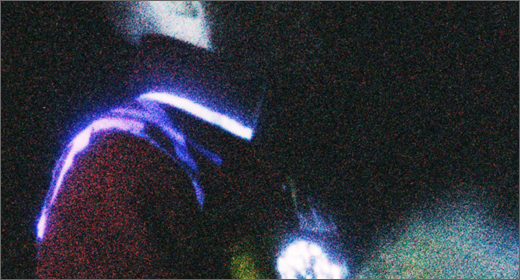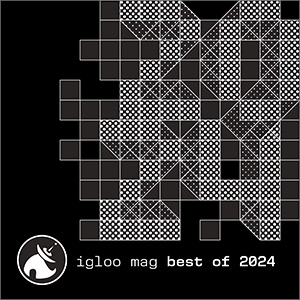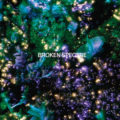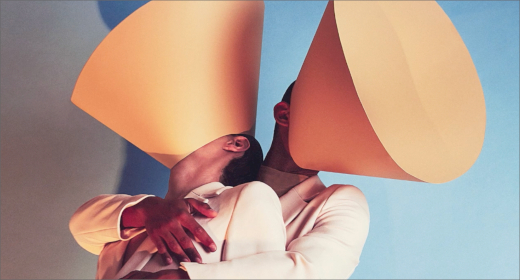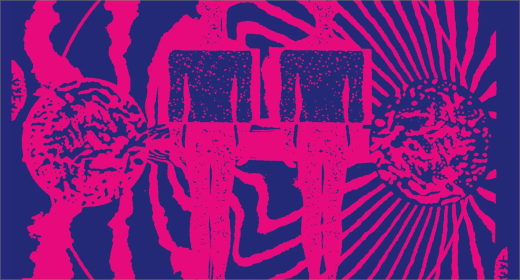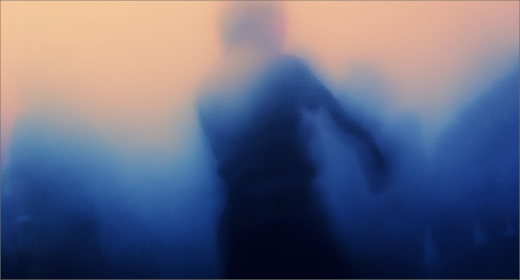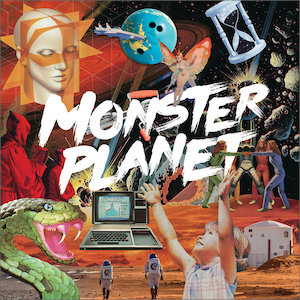Aurora is filthy, like good sci-fi, and so it’s not for everybody. It certainly coddles, cradles, swaths the listener, but it does so in a briar patch. It covers you in liquid tar and hardens onto your skin. It’s for the futurist, the skeptic, the one apart.
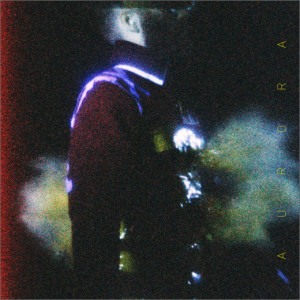 Aurora, by Ben Frost is a sensory experience. It seethes and crackles. It’s full of teeth and claws, and meat. It folds upon itself in great prickly layers, testing the listener. Its crescendo is patient, transparent yet subliminal. In its own words, monolithic. It’s dirty, forceful, realistic, futuristic and fun, like good sci-fi should be, and it’s evocative, descriptive, specific and emotional, like good opera should be. Operatic sci-fi would work as a summary, but it’s an oversimplification. For Aurora is more romantic than baroque, more cyber than steam. The album could describe Brunhilde’s sisters mingling between Midgard and Valhalla, or just as easily a freeway underpass on Europa where the mind can be bought, sold or submerged for a price. The album sets up scenes. It’s score-like, and so perhaps it’s best approached as a series of images rather than a collection of performative techniques.
Aurora, by Ben Frost is a sensory experience. It seethes and crackles. It’s full of teeth and claws, and meat. It folds upon itself in great prickly layers, testing the listener. Its crescendo is patient, transparent yet subliminal. In its own words, monolithic. It’s dirty, forceful, realistic, futuristic and fun, like good sci-fi should be, and it’s evocative, descriptive, specific and emotional, like good opera should be. Operatic sci-fi would work as a summary, but it’s an oversimplification. For Aurora is more romantic than baroque, more cyber than steam. The album could describe Brunhilde’s sisters mingling between Midgard and Valhalla, or just as easily a freeway underpass on Europa where the mind can be bought, sold or submerged for a price. The album sets up scenes. It’s score-like, and so perhaps it’s best approached as a series of images rather than a collection of performative techniques.
“Flex” brings the album in with a washing, bowed heartbeat—a sampler platter of meditative crunch-sweeps and noise-sample baklava, and it introduces some of the main characters. Enter stage right the great whine upon which the album is predicated. It’s a mistake to view Aurora separated into tracks, it’s really all a singular tidal experience, and the water always tastes the same. If you don’t get it now, this isn’t the album for you.
“Nolan” introduces the bells and the ubiquitous airplane whine returns. As one of three 6 minute tracks, “Nolan” can take its time to expand and contract. It’s a song that’s easy to get lost in, or difficult to approach as a whole. Instead you find yourself latching on to the familiar characters, the sudden left speaker cliff-face, and the hearts of aforementioned prickly meat. Although that’s not to say that it doesn’t offer respite, for when it matters, “Nolan” is ready to cleave the fog with the direst of Mortal Kombat hooks and nostalgic techno laser-sweeps.
Recede to the hiss and we’re on to “The Teeth Behind The Kisses,” a surprising name for how little teeth the song has. Foreshadowing, I guess.
“Secant” marches in steel toed boots. Rotten metal grinds its edges and echoes across smoke filled caverns. The bells return, barely audible in the distance. A melodic thread hangs in the air, but at the latter half of the song it returns the background to the airplane whine and finally clambers into the forefront with the support of a stampeding bass drum. So much of the beauty of this album lies in its dirt. It plays at repetition and meditation but always manages to break its own rules, and thus rarely stales.
We’re back in the airplane on “Diphenyl Oxalate,” another disappointing title (the chemical compound in glow-sticks), but its connection to the rest of the album is certainly present. The airplane is hijacked, or perhaps just turbulent, but without the space to incorporate variety it comes across as the least earnest track of Aurora.
Next up is “Venter,” second of the three six minute tracks. Riding a crispy, Tool-esque spattering thrum, it delivers. again the bells, and again the whine, but something is more locked into itself. The monolith is being raised, and the rhythm has come into its own. It exalts in itself and when the beat drops halfway and stays with you, you’re ready for it. A satisfying whirlwind ensues, and then suddenly subsides to the first real peaceful moment of the album.
“No Sorrowing” is a tasteful respite from the great crunch, and consists of another lull-turned airplane whine. It’s hard to hammer down the airplane sample (if that’s indeed what it is). It’s a brilliant choice, it makes you feel as though your head is pressurizing itself.
“Sola Fide,” the last of the three sixes, and clearly the highlight of the album. Something feels composed, there’s a non-random detail that comes through best on this song. Robots clap hands according to forgotten algorithms as missile silos detonate themselves in the background. One looping repetition fades into another as the last great steel fog sweeps over the album. The plane is finally getting up to altitude, or perhaps taking off, and it has the confidence of a great machine that functions in spite of its parts. At two thirds into the song the airplane crosses into a lightning-toothed nebula, to pass through, scathed, in “A Single Point of Blinding Light,” the final track. The god/singularity/enlightenment imagery of the title is a bit heavy handed, but as it’s not coupled with some sort of artificial oneness, it’s welcome. Instead the album makes a triumphant bow by incorporating the sample library into a great thorny wave, finally disappearing back into the high whine that we’ve come to call home.
Aurora is filthy, like good sci-fi, and so it’s not for everybody. It certainly coddles, cradles, swaths the listener, but it does so in a briar patch. It covers you in liquid tar and hardens onto your skin. It’s for the futurist, the skeptic, the one apart. If you find yourself needing to commune with the bog for a bit, to take a break from all this insufferable poise, give Aurora a listen. If not, wait and see what ol’ Ben does next. I certainly hope he keeps moving towards synth, as he’s got a lot to say.
Aurora is available on Mute.






